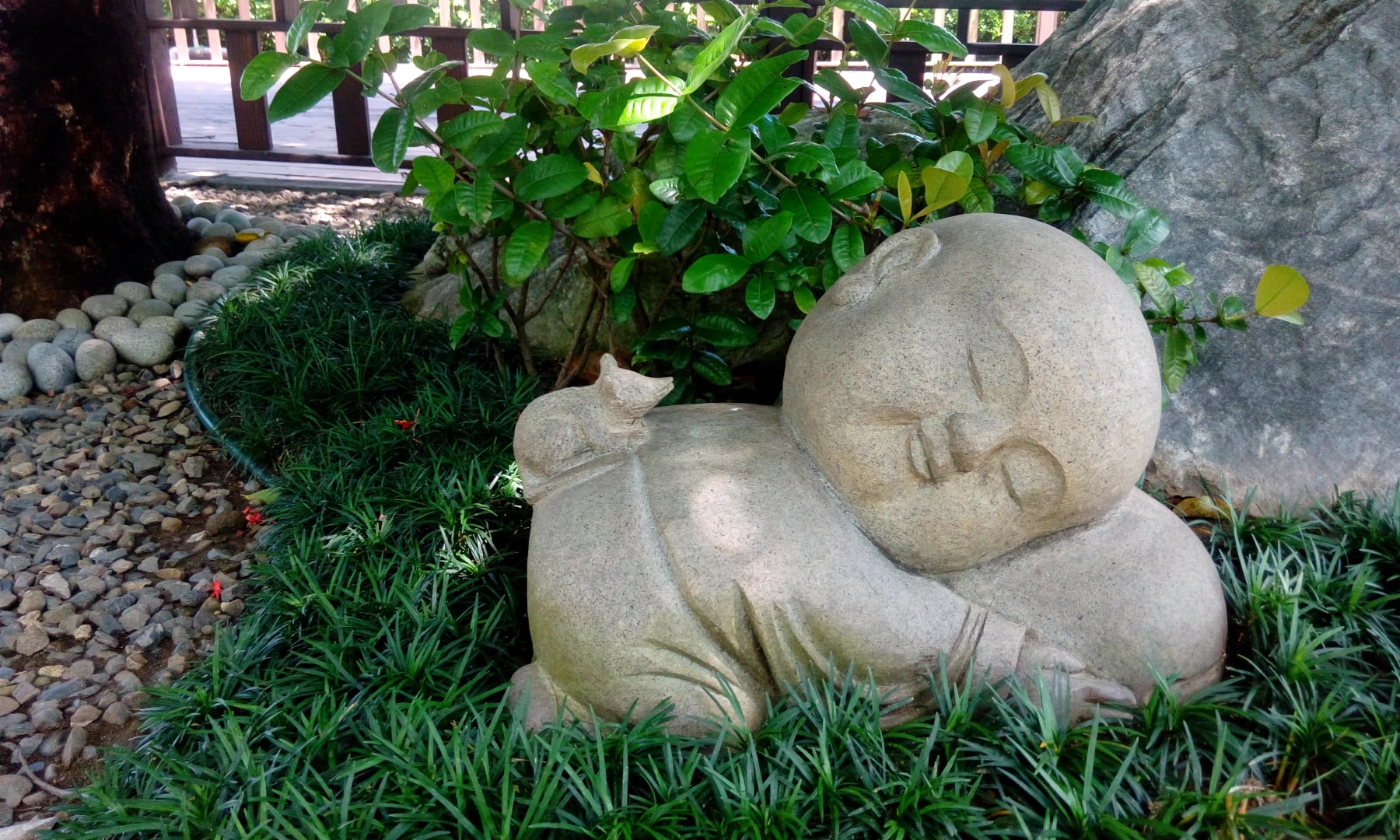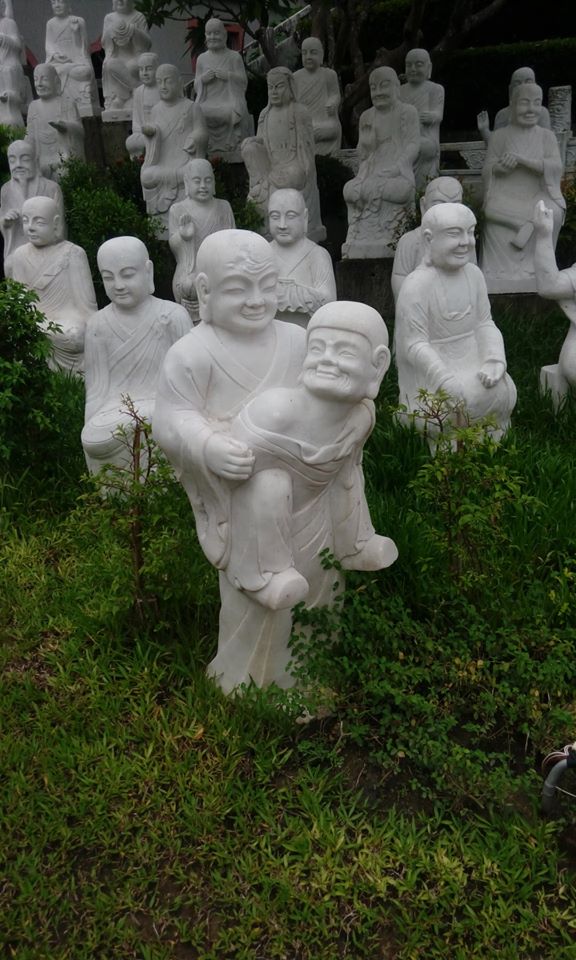Loving-kindness and compassion are wealth common to all
beings. The radiance of loving-kindness and compassion warms the world with hope. Loving-kindness means bringing happiness to others, and compassion means alleviating the suffering of others; upon seeing others in pain, one is willing to remove their suffering and give them joy.
Loving-kindness and compassion are the heart of Buddhist teachings. The saying, “cultivate unconditional loving-kindness and universal compassion” is often heard. However, loving-kindness and compassion are not exclusive to Buddhists. One should not expect loving-kindness and compassion from others, but practice it towards others.
Instead of reserving one’s love, kindness, and compassion for family and friends, unconditional loving-kindness means being kind and compassionate even toward those whom one does not have affinities with. True loving-kindness and compassion means helping whoever needs help, no matter if known or related to that person.
Universal compassion is to regard oneself and others as the same.
It is not difficult to practice loving-kindness and compassion; the key is putting oneself in others’ shoes. When others are in need, one offers help; when one is in need, one also seeks help from others. By putting oneself in others’ shoes, a mind of loving-kindness and compassion will naturally arise.
I always tell my disciples, “One can be without anything, but never without kindness and compassion.” Not only are loving-kindness and compassion fundamental to the Buddha’s teachings, but they are also qualities that everyone should possess. However, if practiced improperly, kindness and compassion can become unwholesome. For example, parents who condone their children’s wrong behavior may create social problems. Tolerance for crime and misconduct causes social disorder. Senseless donation encourages greed. The excessive practice of life-releasing harms instead of saving lives. These actions originate from the lack of right understanding and moral courage.
Therefore, true loving-kindness and compassion should be guided by wisdom and right view. If not, excessive kindness and compassion lose their original benevolence and goodwill.
True loving-kindness and compassion include not only amiable compliments or encouraging words. Great kindness and compassion can sometimes take the form of vajra strength to defeat evil. For instance, a statue of Maitreya Buddha at the mountain gate smiles and welcomes all who visit the monastery, embracing them with the power of loving-kindness and compassion. However, after crossing the mountain gate, one sees a statue of a brave and mighty Dharma protector, the heavenly general Skanda. He wears armor and carries a vajra staff, defeating evil and subduing defilements with the power of loving-kindness and compassion.
Some are motivated to improve by the kind and compassionate encouragement of love, while others become vigilant through strict admonishments. Likewise, a gentle breeze in spring and summer rain may encourage the rapid growth of plantation, but a chilly frost in autumn and deep snow in winter can also allow plants to become even lusher.
However, most people usually practice “momentary compassion” or “enthusiastic compassion.” Rarely do they practice “silent compassion” or “eternal compassion.” What is meant by momentary compassion? For example, giving money to the poor only provides temporary relief to their dire situation. An example of enthusiastic compassion is a solemn and serene Dharma service, affecting the participants only for the duration of the service.
What is silent compassion? For example, people pursuing cultural endeavors must endure loneliness as they work in solitude. Although unnoticed by many, the impact made by these unsung heroes is immense. Examples of practitioners of eternal compassion include those who establish schools, inspiring the development of wisdom through education, as well as authors who spread beautiful and virtuous ideas through their writings. These are all exemplars of “eternal compassion.”
If one could care for others with a compassionate mind, view the world with compassionate eyes, compliment others with compassionate words, and do wholesome deeds with compassionate hands, one’s heart will accord with compassion. Not only will one be more compassionate, but also suffuse the whole universe with compassion. Loving-kindness and compassion are like a priceless passport—a person may own nothing, but no matter where they go, happiness and safety will follow.
Buddha-Dharma: Pure and Simple
Venerable Master Hsing Yun






